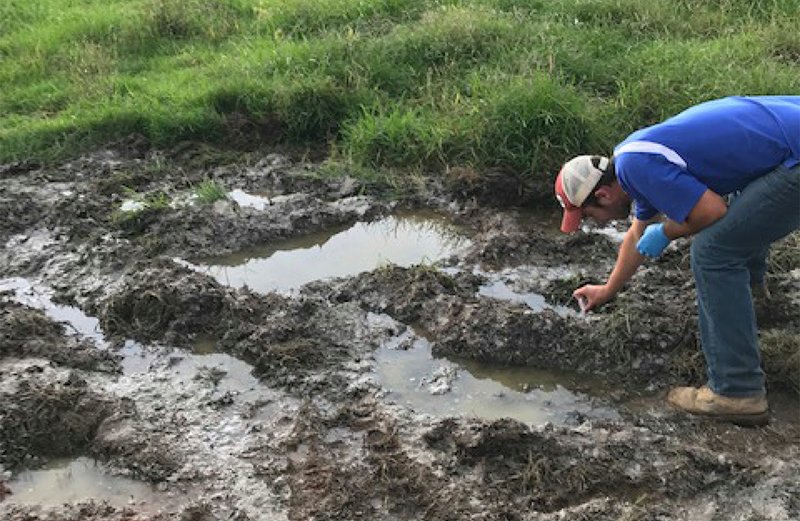BETHEL HEIGHTS -- The city plans to send its sewage to the Northwest Arkansas Conservation Authority's regional wastewater treatment plant in south Bentonville rather than build a replacement for its troubled facilities.
The decision was part of a report from the city required by the Arkansas Department of Environmental Quality after Bethel Heights continued to operate its wastewater treatment plants out of compliance with its state permit. The report was prepared by Hawkins-Weir Engineers in Little Rock.
An early estimate in the report put the cost of the project at $6.4 million and the timeline at three years.
The city also will bear the cost of updating its current system to operate in compliance with state permits in the interim at an estimated $320,000, according to engineers who helped prepare the report.
The city must pay to close its two plants once the tie-on to the regional facility is completed, but engineers gave no estimate for that cost.
The City Council on Nov. 19 voted unanimously to become part of the regional authority's system.
City officials, their lawyers and Environmental Quality representatives couldn't be reached Friday and didn't respond to messages.
The city owes the state two more reports under an administrative consent order Mayor Cynthia Black signed in late October. One, due Feb. 1, should include a timetable to tie on to the authority. A plan due in April should list the measures and a timeline needed to close the city's wastewater plants.
The consent order sets no deadline for closing the plants nor does it address how the city will pay for the infrastructure needed to send its wastewater to the authority.
The engineer's report doesn't address how the city will pay to connect to the authority's treatment plant. The city might be eligible for grants specifically for municipalities discharging to the authority's plant, it says.
Connecting to the authority would allow Bethel Heights to grow and would ensure adequate wastewater treatment capacity, the report states.
City officials considered three other alternatives for treating their wastewater.
Constructing a modern treatment plant would cost $5.8 million and take 3½ years, the engineering report estimated. But the city likely could operate it only with stringent permit limits and would need to hire additional staff, including an operator with the top certification level in the state, it said.
The city considered joining Cave Springs in connecting to the regional system. The engineers could offer no cost estimate. They did note difficulties of a shared pipeline, including the operation of the cities' systems and growth of the cities and the capacity of the system.
Becoming part of the Springdale Water Utilities system isn't an option now, the report notes. Springdale doesn't accept new sewer customers outside of the areas already served by the utility.
The engineering report listed many deficiencies in Bethel Heights' wastewater system, including equipment out of date and equipment that doesn't work.
Inspectors reported screws being used to hold toggle switches in place.
The city has reshaped drip line trenches, installed new drip line tubing and replaced pumps and pump motors, according to the city's weekly progress reports to the state.
The city spent $280,828 in August and September to get its two wastewater treatment plants into compliance with state permits, according to documents provided by the city.
The engineering report said the city largely has operated the plant outside its permit limits for a decade.
"The city of Bethel Heights waste water treatment units have a long history of noncompliance with their permit requirements," the report states. "Effluent quality violations are known to have occurred on a regular basis for at least 10 years. Effluent surfacing has been noted since as early as 2007."
Bethel Heights operates a STEP system, which partially treats wastewater from its roughly 650 customers. After removal of solids, the system releases partially treated water underground in a drip irrigation system, relying on the land structure to complete the purification process.
Any pooling of wastewater above ground is a violation of the city's 2015 permit, Jacob Harper, media and communications manager for the Environmental Quality Department, said in October.
State inspectors, residents and the city have documented water pooled on the ground and tested it to be high in levels of E. coli and coliform since February. One state test was returned from the laboratory with the contaminant level too high to test with normal protocols.
A Nov. 18 report by GTS Inc., an environmental service company in Fayetteville, showed the city's four drip fields still out of compliance.
The state on Aug. 16 fined Bethel Heights $122,000 for violations of its wastewater treatment plants. The state in October reduced the fines by $81,200 in exchange for the city agreeing to find an alternative wastewater treatment option and to fix the system.
State Desk on 11/30/2019
